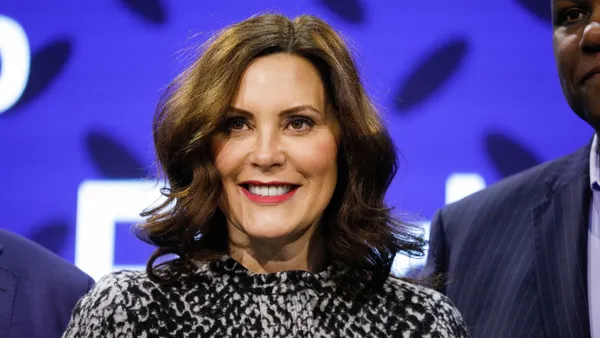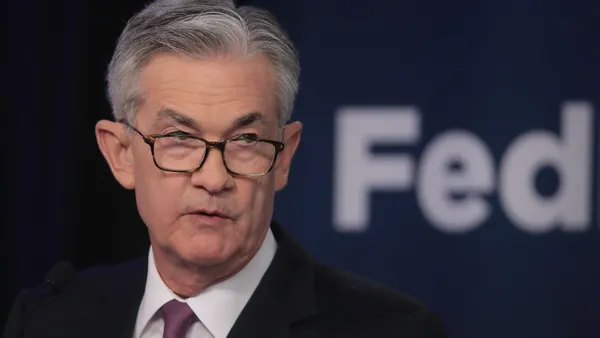Dive Brief:
-
Nearly half of CFOs are not incorporating a potential second wave coronavirus outbreak in their scenario planning, a Gartner survey released Monday found. Among 99 CFOs surveyed, only 22% of the finance chiefs questioned have a second wave factored into their most likely scenario.
-
This lack of planning comes even as CFOs cautiously move towards reopening operations and bringing employees back to normal office routines.
-
"As CFOs attempt to project 2020 revenue and profits, it’s surprising that 42% are not baking a second wave of COVID-19 into any of their scenarios," said Alexander Bant, Gartner finance practice research vice president. "Our latest data [finds] most executive teams are still trying to decide what factors they should use to determine how and when to reopen their offices and facilities."
Dive Insight:
CFOs are figuring out how to sustainably return to work in the next few months, Bant told CFO Dive in an interview Monday. "And, so, even if their scenarios don’t indicate a second wave, they're trying to figure out how to do things, such as scheduling select sects of the workforce to be in the office at certain times."
"If a second wave indicates a drop in customer demand, such that their revenue and profit models don't capture the impact of that second drop, that would be scary," Bant said.
Over eight in 10 CFOs defer to state and local authorities for an idea of when to restart their operations, but nearly half (44%) are unsure how employees will be brought back to work. Many are considering new workday operations to eliminate overcrowding or close contact, such as alternating office time and voluntary remote working.
"I think CFOs have now realized that most of their internal processes can be done remotely," Bant said. "They're warming up to tech solutions that enable broader work from home solutions."
CFOs' concern about the pandemic's duration, severity and related macroeconomic implications continue to grow, contributing to the disconnect between when CFOs think they’re permitted to reopen their facilities, compared with their own specific plans.
Many CFOs are conscious of moving too quickly; the survey revealed only 4% said their organizations will require employees to immediately return to the office after receiving approval from authorities to reopen.
"I think it's pretty astounding that only 4% of companies will say all employees will be required to return to their normal office and schedule," Bant noted. "In the near term, as we reopen, it's pretty telling that almost no companies will go back to the way they've been doing things."
Despite the lack of contingency planning for a possible second wave, CFOs have become increasingly concerned about the risks associated with the pandemic broadly, citing "macro-pandemic concerns" as their top concern at over twice the rate they did in early April.
These concerns have grown, while fears of revenue loss and employee management issues, such as productivity losses and meeting payroll, have receded.
CFOs' concerns about the "big picture" pandemic implications have grown to tie with cash flow worries as the top concern cited in April about the COVID-19 crisis, with each category selected by 28% of the CFOs surveyed.













